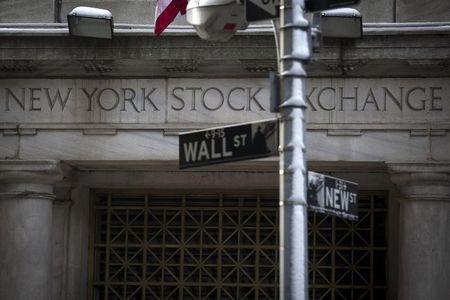By Gabriel Debenedetti and Emily Stephenson
WASHINGTON (Reuters) - Wall Street donors are opening their wallets to back the Republican fight for control of the U.S. Senate in November's election, and financial services has emerged again as the highest spending sector, according to campaign finance reports.
But widespread skepticism about accomplishing various financial sector policy priorities, such as scaling back the 2010 Dodd-Frank law or enacting business-friendly tax reforms, amid Washington's paralysis has dampened the excitement of some traditional financial industry donors, such as big banks.
Instead, the upswing in donations reflects an ideological shift, as right-leaning hedge fund managers and private equity executives increasingly throw big money into key national races rather than focusing on specific issues, industry insiders and campaign finance experts said.
Nearly 62 percent of disclosed financial sector donations in congressional races have gone to Republicans or Republican-aligned groups in this election cycle, compared with 53 percent in 2010, the last midterm election cycle, according to the Center for Responsive Politics, a Washington research group.
The numbers are based on Federal Election Commission filings through early September, and spending is likely to increase in the final weeks before Election Day. Overall, the sector has given more than $318 million so far this cycle, compared with $328 million over the entire 2010 election cycle.
The next highest-spending industry sector is lobbyists and lawyers, according to the Center for Responsive Politics.
Robert Wolf, a confidant of President Barack Obama who now runs a financial advisory firm after having served as an executive at UBS, said donors are more focused on helping their preferred party succeed than on individual issues.
INVESTING IN THE POWERFUL
The roster of major contributors includes big hedge fund donors, such as Paul Singer of Elliott Management, who have backed groups that explicitly aim to help Republicans regain control of the Senate.
Finance industry experts said some of the shift was due to disillusionment with Obama, who they felt had demonized them in the aftermath of the financial crisis. Others became frustrated over tax proposals championed by Democrats that they thought unfairly punished hedge funds and other financial firms.
Top conservative fundraisers picked up on the discontent and began engaging hedge funds and other nonbank financial institutions more in recent years, said one Washington-based hedge fund industry insider.
"I think the Republican machine did a very good job of saying, look, we sort of know most of the bank Republicans, we know sort of a lot of the insurance Republicans. We don't spend a lot of time with these hedge fund guys," the insider said.
In fact, the shift comes as many of the traditional financial services donors express apathy toward Washington.
Most experts believe lawmakers will not significantly revamp the Dodd-Frank Wall Street oversight law under this president, who championed the reforms. The only changes they anticipate are tweaks to benefit smaller banks.
Immigration reform, supported by high-profile bankers including Lloyd Blankfein of Goldman Sachs, appears unlikely to move forward in Congress for now, and tax reform was unable to gain traction in 2014.
And financiers have clashed with conservatives over business-friendly programs such as temporary tax breaks, as well as Tea Party-aligned lawmakers' willingness to shut down the government in 2013 and flirt with debt default several times in recent years.
That dynamic has prevented big banks from leaping whole-heartedly into the midterms.

In some neck-and-neck races, Democrats even hold the advantage among financial sector donors. Senator Kay Hagan, a Democrat of North Carolina who is a former bank vice president, has outpaced her Republican opponent in fundraising from the sector.
(Reporting by Gabriel Debenedetti and Emily Stephenson; Editing by Leslie Adler)
